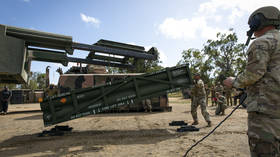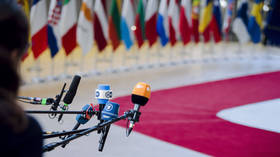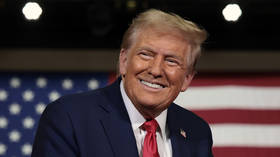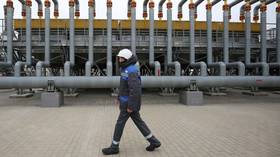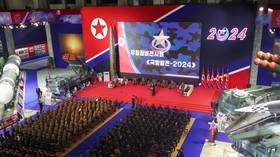Ukraine ‘censored’ arms sales documentary
A Russian film-maker claims the Ukrainian authorities prevented him from screening a documentary revealing the extent of Ukraine's arms sales to Georgia. Ukrainian Prime Minister Yulia Timoshenko has already admitted her country’s behaviour during the war
Meanwhile, the Russian foreign ministry has accused Ukraine of concealing its involvement in the August conflict.
The documentary, called “The Art of Betrayal”, has been posted on the Russia.ru website. The film follows events surrounding August’s war in South Ossetia. Aleksey Akimov, one of the producers, travelled to the war zone three days after the conflict started. The aim, he said, was to present the truth.
“We followed Georgian troops on their way to Tskhinval. Our documentary shows footage that Georgian soldiers filmed with their cell phones – and they filmed a lot,” Akimov said.
“We want people to see the real picture of what happened there.”
Akimov is critical of how the Western media handled the story, saying “most Western channels like the BBC and CNN were on a campaign to mislead the viewer”.
After publishing the documentary on the internet, the makers decided to present their report to the Ukrainian public. They chose one of Kiev’s luxurious hotels for their initial promotion.
The team said they received permission to show the footage on large screens in the hotel’s conference room. However, at the very last minute, the Ukrainian security service stopped them, for what they said were “security reasons”.
Akimov was left with no choice but to distribute his documentary on DVD.
Ukrainian MP Valery Konovaluk heads a special parliamentary commission, which is investigating illegal arms trading in Ukraine. He believes that president Yushchenko has been involved in dirty deals and, in particular, was responsible for arming Georgia prior to the conflict – something the documentary also alleges.
Konovaluk has said several times that Ukraine’s leader has to be impeached. He’s angry over the cancellation of the documentary.
“It’s the third time in a row that we have had such an event cancelled. But in this case it wasn’t my commission who organised it, but – just think of it – the Russian Embassy in Ukraine. We invited many diplomats from other countries, international organisations like PACE, lots of western mass-media. And at the same time, we’re being told not to hold it,” he said.
Konovaluk’s commission recently travelled to South Ossetia to investigate and said that they found proof of Ukraine’s involvement in the conflict. The deputy is preparing a report to be made public soon.
Konovaluk has been running his investigation for several months now, but the presidential administration is yet to respond to his statements. At the same time, Valery has been called to prosecutor’s office for questioning. The Rada deputy is being accused of counter-intelligence activities and jeopardising national security.
Sergey Bondarchuk, the head of the country’s main arms exporter, Ukrspetzexport, says Konovaluk fails to recignise how important arms sales are to the Ukrainian economy.
“It seems he doesn’t know that the money raised from weapons sales goes directly into the state budget, for social needs as well. So, jeopardising the sales could lead to social problems.”
He also pointed out that Ukraine had every right to sell weapons to Georgia: “For years we have been legally selling our arms to all countries, which have no weapons embargo. And we will continue doing so,” Bondarchuk said.
And he’s not alone. A crowd of around 40 came to protest at the screening of the documentary. Some banners even accused Konovaluk of being an FSB (the Russian security service) agent. But the deputy says that despite the pressure, he won’t give up in his search for the truth.
On Friday he promises to show the Russia.ru documentary to his colleagues in the Ukrainian parliament. However, it is unclear when he will present his potentially sensational weapons trading report.


